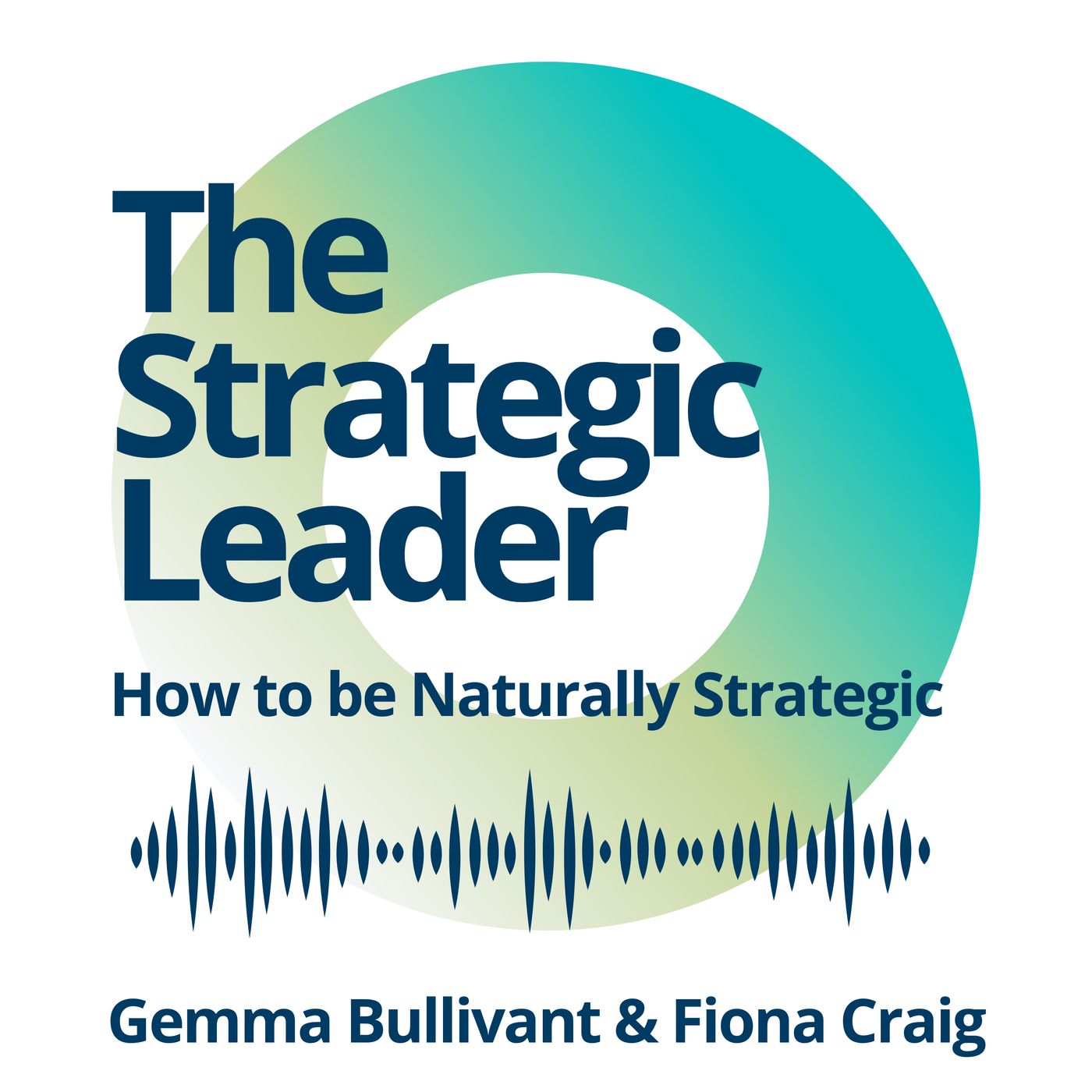
3.04 Managing Up: Why Adapting Your Style to Suit Your Manager Matters

The Strategic Leader
Shownotes Transcript
Do you find it challenging to communicate effectively with your manager?
We talk about the dynamics of optimising workplace relationships, especially with managers, and offer practical techniques to improve communication and mutual understanding. Fiona shares a personal story about adapting her communication style with a previous CEO, and her learnings about the importance of recognising different personalities, thinking styles, and behavioural tendencies.
Gemma explains the Parent-Adult-Child (PAC) model, a framework rooted in Transactional Analysis, and how it can specifically help with relationships influenced by the power dynamic.
>> Read more about the Transactional Analysis Parent Adult Child (PAC) model in Gemma's blog here )
According to the PAC model, people may assume different relational stances - Parent, Adult, or Child - depending on the context, and understanding these can empower one to foster healthier, more productive interactions.
We talk about how important it is to focus on remaining in Adult mode, the optimal state for professional dialogue, and to notice when power dynamics, authority, or even personality clashes might pull them into Parent or Child roles. We offer valuable insights into creating mutual respect, navigating workplace hierarchies, and ultimately cultivating a more strategic approach to workplace relationships.
Key Points Discussed:
- Fiona shares the importance of self-care for professionals and leaders.
- Managing up: How to align with managerial styles for better productivity.
- Recognising and respecting introverted and extroverted thinking styles.
- Transactional Analysis and the Parent-Adult-Child model for understanding workplace dynamics.
- Importance of maintaining an Adult-to-Adult mode in communication.
- Techniques for shifting out of Parent or Child modes into productive “Adult” mode.
- Practical tips for staying composed and constructive in challenging conversations.
Key Timestamps:
[04:11] - Introducing the episode’s topic: optimising the relationship with your manager.
[06:24] - Gemma and Fiona discuss the idea of “managing up” for mutual benefit.
[08:15] - Defining managerial roles: guiding, advising, approving, and influencing.
[11:31] - Fiona shares a personal example of adapting communication to an introverted CEO.
[13:19] - Introduction to the Parent-Adult-Child model and its workplace applications.
[17:55] - How to maintain an Adult-to-Adult mode and avoid Parent-Child dynamics.
[19:12] - Strategies for shifting from emotional reactions to rational responses in conversation.
Key Takeaway:
Fostering strong, strategic relationships with managers and peers hinges on mutual respect and clear communication. The Parent-Adult-Child model offers a valuable framework for navigating power dynamics in professional settings, encouraging individuals to engage in an Adult-to-Adult manner to avoid unproductive emotional responses. By adapting communication styles to meet both parties’ needs, professionals can create a balanced relationship that benefits all involved.
Thank you for tuning in to this episode of The Strategic Leader podcast. If you enjoyed the show, please give us 5 stars! It will help others to find the show. And don't forget to check out previous episodes, and subscribe for more insightful discussions and practical advice on becoming a more naturally strategic leader.
If you have questions about anything we've been talking about, or need guidance on strategic leadership, we'd love to hear from you.
Feel free to contact us via www.gemmabullivant.co.uk (Gemma) or www.wearegoodthinking.co.uk (Fiona). Your queries could inspire future episodes to help you become a more strategic leader.